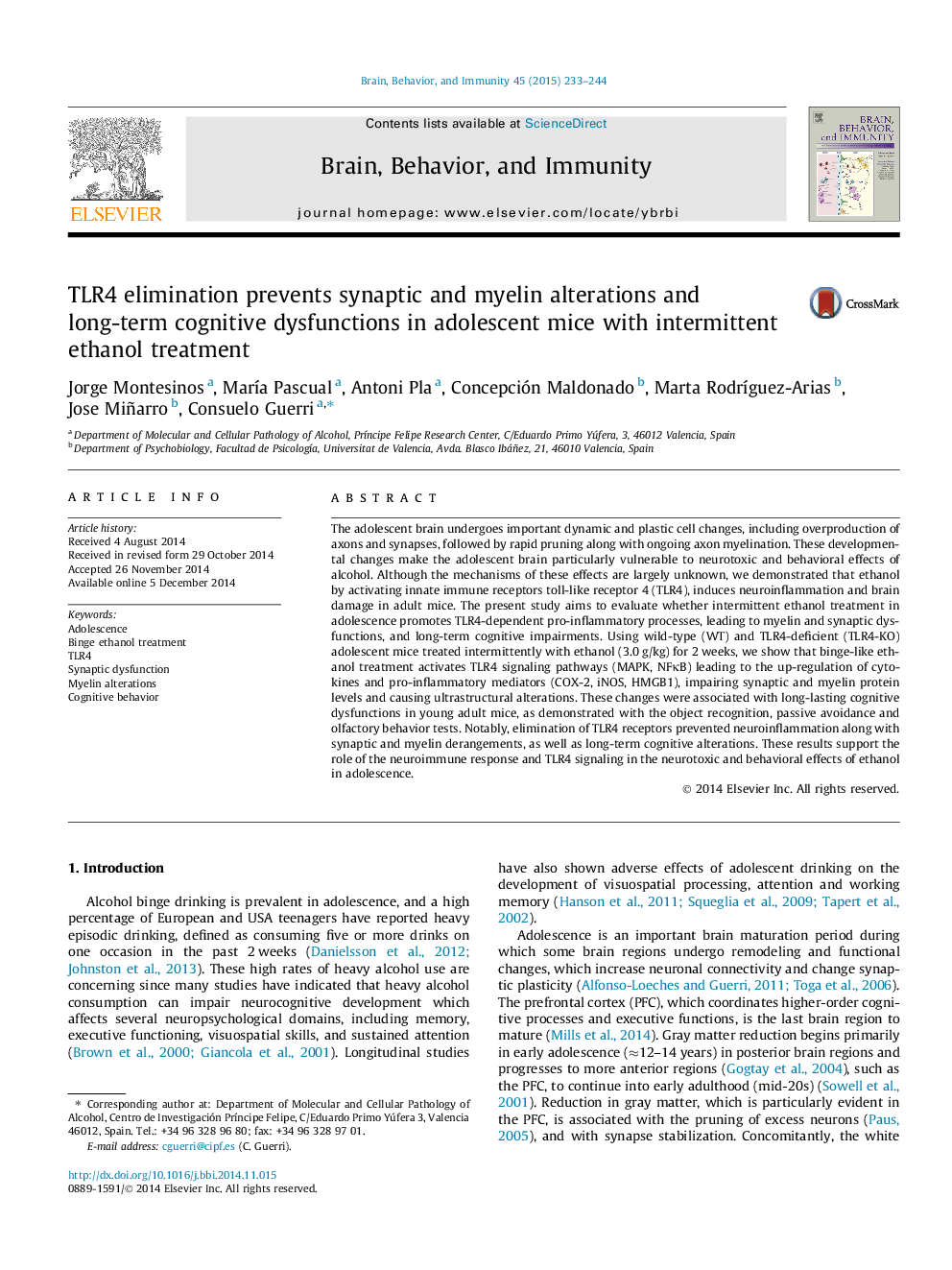| Article ID | Journal | Published Year | Pages | File Type |
|---|---|---|---|---|
| 7281342 | Brain, Behavior, and Immunity | 2015 | 12 Pages |
Abstract
The adolescent brain undergoes important dynamic and plastic cell changes, including overproduction of axons and synapses, followed by rapid pruning along with ongoing axon myelination. These developmental changes make the adolescent brain particularly vulnerable to neurotoxic and behavioral effects of alcohol. Although the mechanisms of these effects are largely unknown, we demonstrated that ethanol by activating innate immune receptors toll-like receptor 4 (TLR4), induces neuroinflammation and brain damage in adult mice. The present study aims to evaluate whether intermittent ethanol treatment in adolescence promotes TLR4-dependent pro-inflammatory processes, leading to myelin and synaptic dysfunctions, and long-term cognitive impairments. Using wild-type (WT) and TLR4-deficient (TLR4-KO) adolescent mice treated intermittently with ethanol (3.0 g/kg) for 2 weeks, we show that binge-like ethanol treatment activates TLR4 signaling pathways (MAPK, NFκB) leading to the up-regulation of cytokines and pro-inflammatory mediators (COX-2, iNOS, HMGB1), impairing synaptic and myelin protein levels and causing ultrastructural alterations. These changes were associated with long-lasting cognitive dysfunctions in young adult mice, as demonstrated with the object recognition, passive avoidance and olfactory behavior tests. Notably, elimination of TLR4 receptors prevented neuroinflammation along with synaptic and myelin derangements, as well as long-term cognitive alterations. These results support the role of the neuroimmune response and TLR4 signaling in the neurotoxic and behavioral effects of ethanol in adolescence.
Related Topics
Life Sciences
Immunology and Microbiology
Immunology
Authors
Jorge Montesinos, MarÃa Pascual, Antoni Pla, Concepción Maldonado, Marta RodrÃguez-Arias, Jose Miñarro, Consuelo Guerri,
